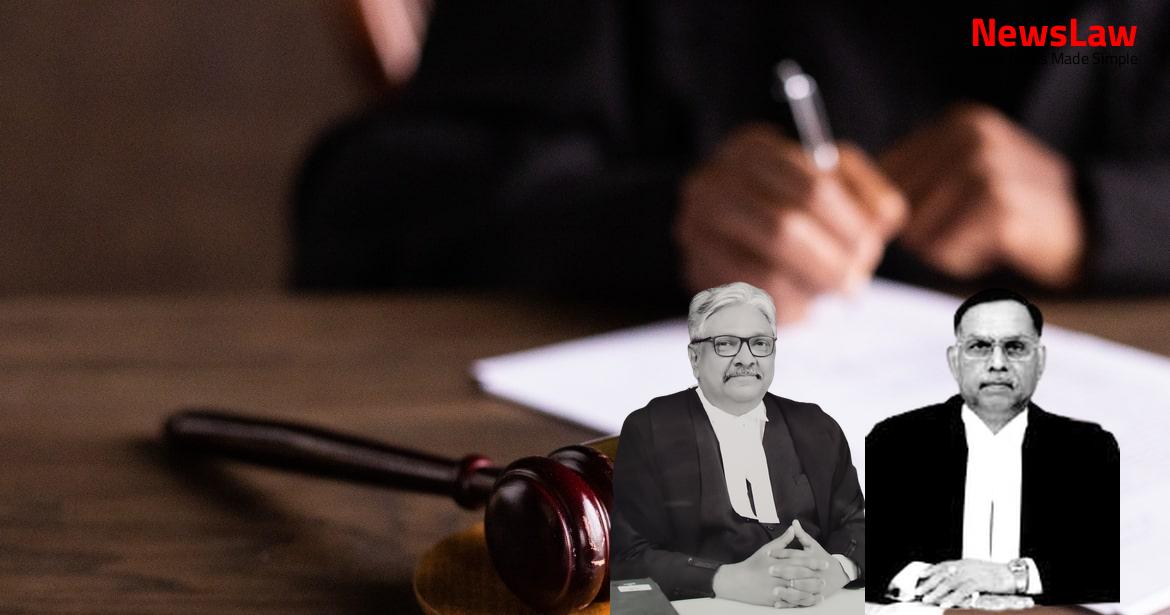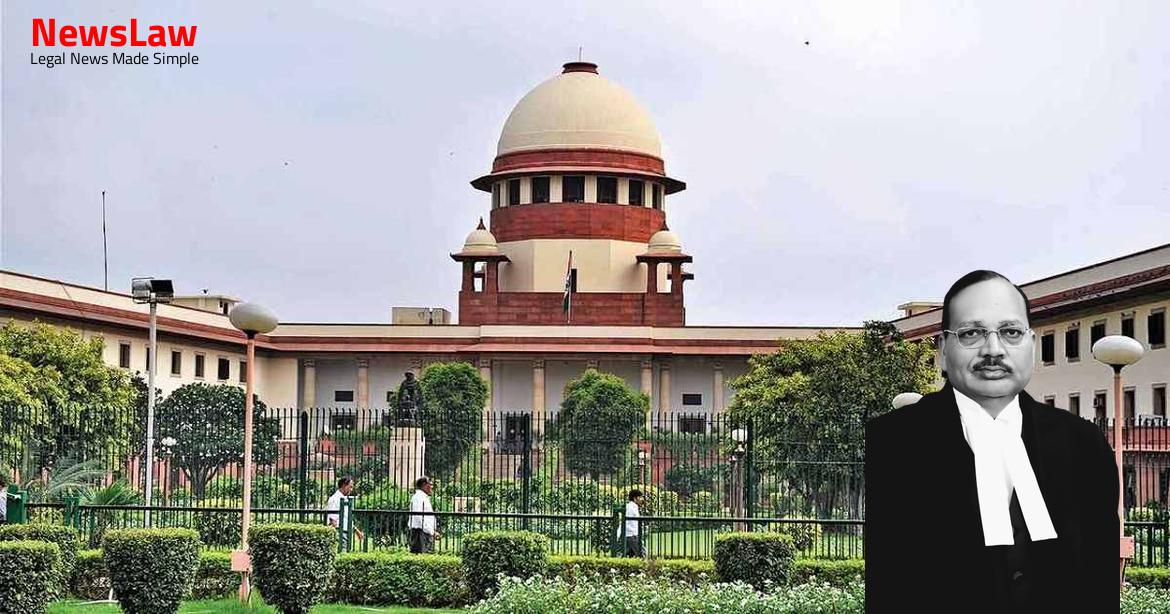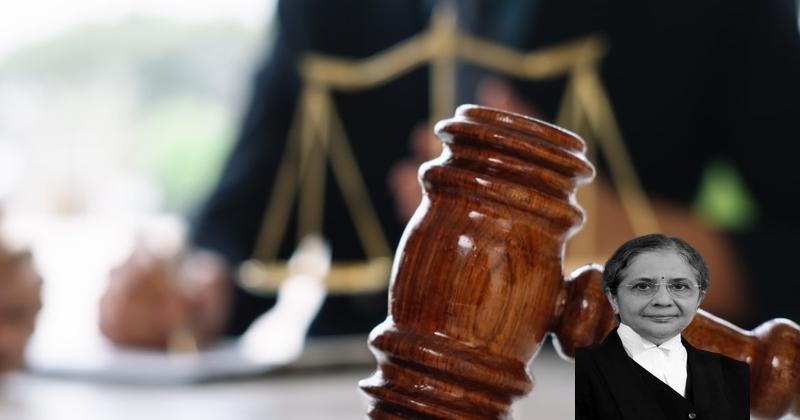In a recent landmark judgment by the Supreme Court, the application of the Limitation Act in appeals under Act 1959 was clarified. The case involved a dispute regarding the jurisdiction of the Commissioner to consider applications under Section 5 of the Limitation Act. The ruling sheds light on the status of the Commissioner in relation to the provisions of the Limitation Act, impacting the conduct of appeal proceedings. Stay tuned to learn more about this significant legal interpretation.
Facts
- The High Court had directed the Commissioner to dispose of the appeal expeditiously within a period of four months.
- The appellant filed a writ appeal against the judgment of the learned single Judge.
- The delay condonation application was filed by the third respondent in his appeal for condonation of delay of 266 days.
- The cause for delay shown was the ill health of the third respondent.
- The Joint Commissioner passed an order in favor of the appellant granting Ambalam Right and first respect in the village.
- Two writ petitions were filed challenging the order of the Joint Commissioner.
- An application under Section 63 of the Act 1959 claiming Ambalam right was filed by the appellant.
- The third respondent filed an appeal under Section 69 of the Act 1959 against the order of the Joint Commissioner.
- A writ petition was filed by the third respondent seeking a direction to decide his statutory appeal.
- Learned commissioner passed an order dated 31.07.2013 condoning the delay of 266 days in filing the appeal.
- Writ petition W.P.M.D. No 13804 of 2013 was filed against the order dated 31.07.2013.
- The Division Bench of the Madras High Court referred to various provisions of the Act, 1959, and concluded that Act 1959 does not exclude the applicability of the Limitation Act, 1963.
- In appeal proceedings before the Commissioner, Section 5 of the Limitation Act is fully applicable according to the learned single Judge.
- The delay in filing the appeal has rightly been condoned by the Commissioner citing sufficient cause.
- Both writ petitions were dismissed by the High Court in its judgment dated 10.01.2012.
- A W.P.M.D. No 379 of 2012 was filed by Laxmanan, initially an interim order dated 12.01.2012 was passed.
Also Read: Entitlement to Back Wages: Upholding Justice
Issue
- The main issue in this appeal is whether the Commissioner, while hearing appeal under Section 69 of the Act, 1959, is entitled to condone the delay in filing an appeal by applying Section 5 of the Limitation Act, 1963.
- The questions arising for consideration in this appeal are: 1) Whether the Commissioner is considered a Court while hearing appeals under Section 69 of the Act, 1959; 2) Whether Section 29(2) of the Limitation Act can be applied to filing suits, appeals, or applications before statutory authorities and tribunals under Special or Local Laws; 3) Whether the Commissioner can condone delay in filing an appeal under Section 69 using Section 5 of the Limitation Act, 1963; 4) Whether the statutory scheme of Act 1959 indicates applicability of Section 5 of Limitation Act to proceedings before its authorities.
Also Read: Remand Order Upheld: Legal Analysis in The Case of The National Investigation Agency vs. The State
Arguments
- The counsel for the petitioner argues that the commissioner does not have jurisdiction to consider applications filed under Section 5 of the Limitation Act.
- It is contended that the commissioner, empowered to decide appeals under Section 69 of Act 1959, is not considered a court.
- The only provision of the Limitation Act made applicable by Section 115 of Act 1959 is the exclusion of time required for obtaining a certified copy of an order or decree.
- On the other hand, the counsel for the respondent argues that although the commissioner is not strictly defined as a court under Act 1959, it serves as a court for the purposes of Section 5 of the Limitation Act.
- The respondent’s counsel relies on Section 110 and argues that the procedure for hearing appeals before the commissioner closely follows the Code of Civil Procedure, granting the commissioner all powers of a court.
- The respondent’s counsel highlights that the authorities under Act 1959 conduct proceedings in a judicial manner and have the trappings of a court, indicating that Section 5 of the Limitation Act should be applicable.
- It is further argued that the language of Section 6(6) defining the commissioner and Section 6(7) defining the court differentiate between the two entities, showing that the commissioner is distinct from a court.
- The respondent contends that since Section 5 of the Limitation Act applies only to applications before a court, it does not extend to the commissioner under Act 1959.
- Additionally, the respondent points out that Section 12(2) of the Limitation Act is specifically applied in Act 1959, suggesting that other provisions are not automatically applicable.
- The respondent argues that if the Limitation Act was intended to apply fully to appeals under Act 1959, Section 115 would not have been necessary.
- Section 5 of the Limitation Act is fully attracted in hearing of an appeal by the commissioner.
- Learned counsel for both parties have cited various judgments of this court in support of their arguments.
Also Read: Supreme Court Ruling on Recruitment Rules Challenge
Analysis
- The section refers to computation of the period of limitation for an appeal or an application for leave to appeal or for revision or for review of a judgment, obviously meant for judgment of a court
- Section 13 and Section 14 specifically refer to Court
- The alteration of the division and the change in the collocation of words in Article 137 of the Limitation Act, 1963 compared with Article 181 of the 1908 Limitation Act
- The Tribunal merely dismissed the appeals on the sole ground of delay caused by the appellant in preferring the original application
- Section 2 of the Limitation Act along with Section 14 was also applied to criminal, special, or local law
- The High Court further held that Section 29(2) will get attracted to appeals filed before appellate authority under Section 18 of the Rent Act
- The Legislative intent was not to exclude the applicability of Section 5 of the Limitation Act to Section 19 of the 1983 Act
- The applicability of Section 29(2) of the Limitation Act is with regard to different limitations prescribed for any suit, appeal, or application when to be filed in a Court
- The majority did not agree on account of its wrong supposition that appellate authority functioning under Section 18 of the Rent Act is a persona designata
- Section 115 deals with limitation and provides for exclusion of time requisite for obtaining a certified copy of such order or decree
- Section 14 of the Limitation Act allows exclusion of time spent in pursuing another civil proceeding in good faith in a court without jurisdiction.
- Section 29(2) of the Limitation Act applies to appeals before the Commissioner under the Act of 1959.
- The Act provides for different periods of limitation prescribed by special or local laws for suits, appeals, or applications.
- Section 4 of the Limitation Act deals with the expiration of the prescribed period on a holiday when the court is closed.
- Section 29(3) states that the Limitation Act does not apply to suits or proceedings under laws related to marriage and divorce.
- The provisions of Sections 4 to 24 of the Limitation Act apply unless expressly excluded by special or local laws.
- The Act defines authorities like the Commissioner, Joint Commissioner, and Deputy Commissioner.
- Court, as defined, is the civil court established by the State legislature for dispensing justice.
- The Court procedure during inquiries under Chapters V and VI must follow the Code of Civil Procedure.
- Section 34 of the Act of 1996 sets a three-month time limit for applying to set aside an arbitrator’s award.
- The minority decision in Jokkim Fernandez v. Amina Kunhi Umma was out of step with five earlier binding judgments of the Court.
- Consolidated Engg. Enterprises v. Irrigation Deptt. held that Section 14 of the Limitation Act can be applied to Section 34(3) of the Arbitration and Conciliation Act, 1996.
- The Judgment in Mukri Gopalan vs. Cheppilat Puthanpurayil Aboobacker clarified that the appellate authority is not ‘persona designata.’
- The three-Judge Bench in The Commissioner of Sales Tax, U.P. vs M/s. Parson Tools and Plants held that the appellate and revisional authorities under the Sales Tax Act are administrative tribunals and not courts.
- The judgement in CST, U.P. vs M/s. Madan Lal Das & Sons stated that the U.P. Sales Tax Act is a special law where Section 12(2) of the Limitation Act can be applied for computing the period of limitation for filing a revision petition.
- It was clarified that the Judge(Revision) in the U.P. Sales Tax Act is not a Court but a Revising Authority created under the Act.
- The three-Judge Bench in CST, U.P. vs M/s. Parson Tools and Plants ruled that the appellate authority under the U.P. Sales Tax Act is not a Court.
- M.P. Steel Corporation vs Commissioner of Central Excise emphasized that the Limitation Act applies only to courts and not tribunals.
- The judgement in Officer on Special Duty vs Shah Manilal Chandulal stated that the Land Acquisition Officer is not a Court within the Limitation Act.
- The three-Judge Bench held in Life Insurance Corporation of India that the Limitation Act applies only to applications submitted to Courts and not to bodies other than Courts.
- Mukri Gopalan is no longer considered good law in light of the judgment in Consolidated Engg. Enterprises case
- The three-Judge Bench judgment in State of Madhya Pradesh and another vs Anshuman Shukla (2014) 10 SCC 814 is relied upon by the respondent
- In the case of M.P. Steel Corporation, Mukri Gopalan has been referred to and declared no longer good law due to earlier three-Judge judgments of this Court
- The two-Judge Bench in M.P. Steel Corporation stated in paragraph 29 that Mukri Gopalan’s case is no longer valid
- Section 5 of the Limitation Act is not applicable to proceedings under the Act, 1959
- Section 115 of the Act only provides for computation of limitation, not applicability of Section 5
- The provision in Section 115 cannot be interpreted to allow for the applicability of Section 5
Decision
- Section 5 of the Limitation Act is not applicable as per the scheme of Act, 1959.
- The appeal is allowed and the impugned judgment of the High Court is set aside.
- The order of the Commissioner dated 31.07.2013 is also set aside, and the appeal filed by the respondent is dismissed.
- The appellant will bear their own costs.
- Dismissal of the appeal does not prevent the Commissioner from exercising suo motu power under Section 69(2) of the Act, 1959.
- No opinion is expressed regarding the exercise of suo motu by the Commissioner, and it is left to the Commissioner’s discretion to invoke his power under Section 69(2) if he deems it necessary.
- This decision does not prejudice any other legal remedy available to the respondent.
Case Title: GANESAN REP BY ITS POWER AGENT G. RUKMANI GANESAN Vs. THE COMMISSIONER THE TAMIL NADU HINDU RELIGIOUS AND CHARITABLE ENDOWMENTS BOARD
Case Number: C.A. No.-004582-004582 / 2019



